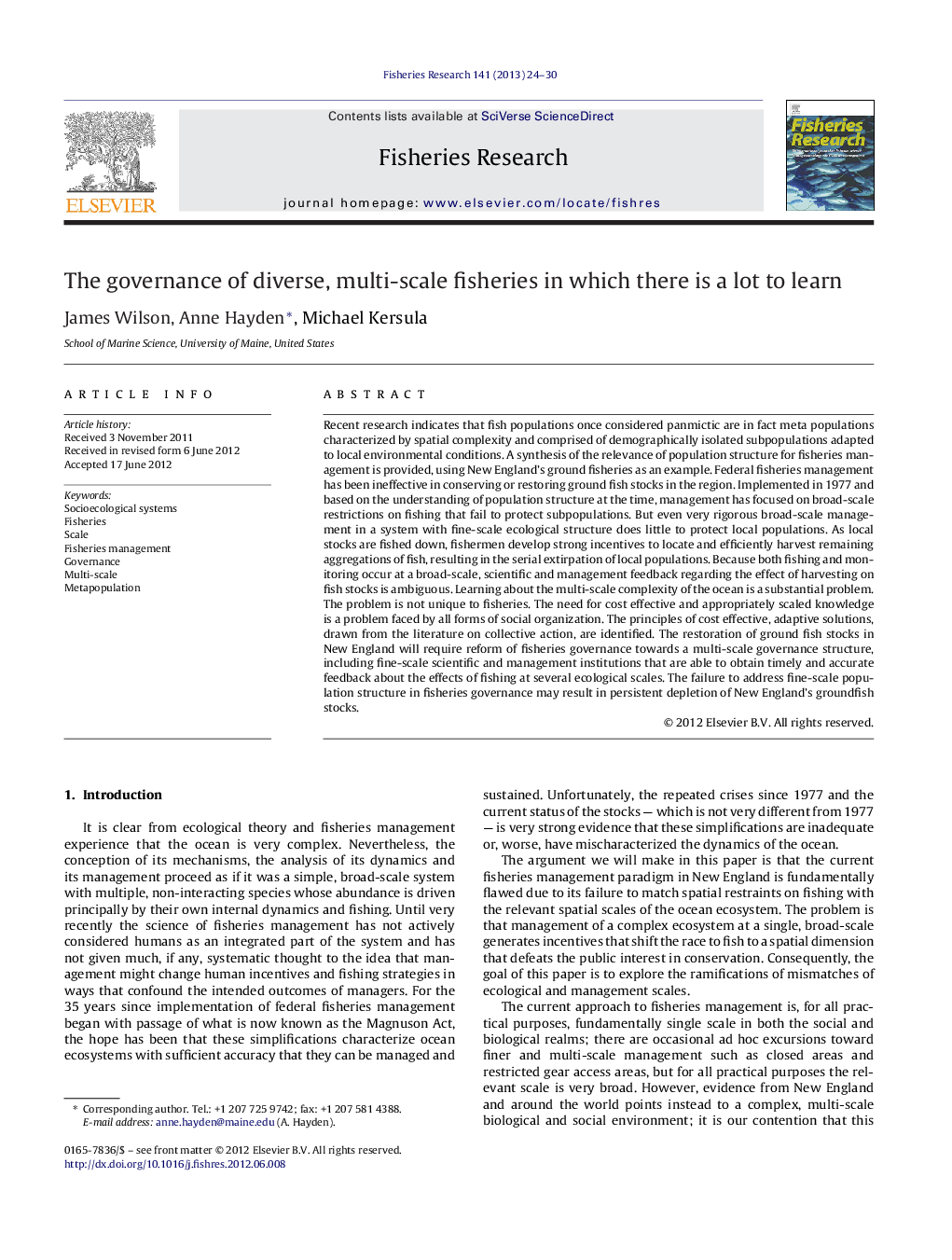| کد مقاله | کد نشریه | سال انتشار | مقاله انگلیسی | نسخه تمام متن |
|---|---|---|---|---|
| 4543179 | 1626827 | 2013 | 7 صفحه PDF | دانلود رایگان |

Recent research indicates that fish populations once considered panmictic are in fact meta populations characterized by spatial complexity and comprised of demographically isolated subpopulations adapted to local environmental conditions. A synthesis of the relevance of population structure for fisheries management is provided, using New England's ground fisheries as an example. Federal fisheries management has been ineffective in conserving or restoring ground fish stocks in the region. Implemented in 1977 and based on the understanding of population structure at the time, management has focused on broad-scale restrictions on fishing that fail to protect subpopulations. But even very rigorous broad-scale management in a system with fine-scale ecological structure does little to protect local populations. As local stocks are fished down, fishermen develop strong incentives to locate and efficiently harvest remaining aggregations of fish, resulting in the serial extirpation of local populations. Because both fishing and monitoring occur at a broad-scale, scientific and management feedback regarding the effect of harvesting on fish stocks is ambiguous. Learning about the multi-scale complexity of the ocean is a substantial problem. The problem is not unique to fisheries. The need for cost effective and appropriately scaled knowledge is a problem faced by all forms of social organization. The principles of cost effective, adaptive solutions, drawn from the literature on collective action, are identified. The restoration of ground fish stocks in New England will require reform of fisheries governance towards a multi-scale governance structure, including fine-scale scientific and management institutions that are able to obtain timely and accurate feedback about the effects of fishing at several ecological scales. The failure to address fine-scale population structure in fisheries governance may result in persistent depletion of New England's groundfish stocks.
► Fish populations once considered panmictic are in fact spatially complex.
► Broad-scale restrictions on fishing result in serial depletion of subpopulations.
► Feedback regarding the effects of fishing is ambiguous.
► Reform of governance to match the multi-scale nature of fish populations is recommended.
Journal: Fisheries Research - Volume 141, April 2013, Pages 24–30